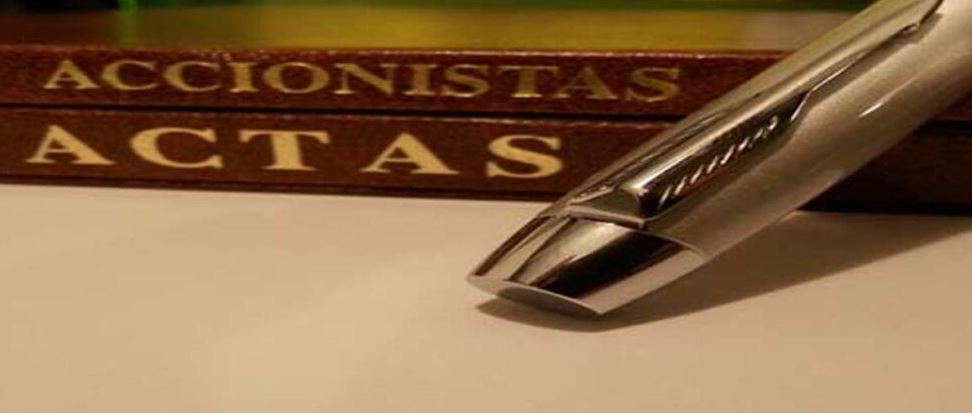STATUTORY AUDIT
The statutory audit service offered by our firm, seeks to guide you respect the risks and compliance with the legal regulations in force, in order to mitigate the fiscal, administrative and statutory situations that the commercial and tax code contemplate in Colombia. The role of a statutory audit is to certify the financial statements, as it is legally required review of financial records the statutory auditing includes a financial audit.
The statutory audit is a service activity which is regulated in Colombia According with the Commercial Code and tax regulations, its purpose is to assess the financial statements, evaluate the elements that make up the internal control of the companies that are legally obliged to have a statutory auditorFor this reason, this activity is hand over by accountants, who are responsible for supervising and approving the information provided by companies to investors, supervisory bodies and the public in general.

As expressed by the central board of accountants:
“The statutory audit is a comprehensive audit activity based on the public interest, it must be guided by a public accountant and may be supported by expert opinions or rely on assistants when required.
The statutory audit is an oversight body which, in the interest of the community, under the direction and responsibility of the statutory auditor and subject to Generally Accepted Auditing Standards, to express an opinion on the financial statements and to systematically review and evaluate the components and elements of internal control, in a timely and independent manner as required by law, statute and professional pronouncements.
CTCP, http://www.ctcp.gov.co/
STATUTORY AUDIT SERVICE | FISCAL AUDITORS
Our statutory auditors, form a suitable team of professionals with the capacity to carry out the professional activity in your organisation, under our strict control and supervision.
Bearing in mind the verification of compliance with legal and statutory obligations, the accuracy of financial statements, internal control, risk assessment and review of processes.
Services in Statutory audit in Colombia
It was born in the midst of the commercial and financial development of the mid-19th century, with the aim of auditing the financial statements of companies and contributing to the generation of confidence in the different interest groups in addition to investors. It was regulated by Law 73 of 1935 and assigned to the public accountant as a private function by Decree 2373 of 1956.
What is the role of statutory audit firms or the statutory audit outsourced service?
- Make regular reports on how the organisation is performing.
- Report on how the controls have worked.
- Identify whether directors comply with their legal and statutory duties.
- Review whether the financial statements present fairly the financial position of the entity and its economic performance.
This being the case, the activities in which the service of a statutory auditor are:
- Financial Audit.
- Compliance Audit.
- Performance Audit.
- Internal Control Audit.
All of the above activities are functions of our Statutory audit service and external auditorsIn this way, our employees will communicate in clear words the progress of their company, thus ensuring that the interests of partners and shareholders, the board of directors and the company’s employees can take action to improve the company’s activities.
Our fiscal audit outsourcing service is based in Bogota, from this vibrating city we followup all the national operation, taking into account the needs of our clients, we give the scope and coverage that our client needs.

What does a statutory auditor do in Colombia?
Statutory audit – “Revisoria fiscal” is an enigma for most of the foreign companies and investors who are advice to hire this services, even for many Colombian, who considers that statutory auditors could delay the execution of their business projects.
However, the statutory auditor is an auditor, who ensures that management is assisted in complying with Colombian regulations by suggesting the implementation of internal controls.
In Colombia, the companies that must have a statutory auditor are those that exceed the assets and income ceiling gross assets as of December 31 of the immediately preceding year are greater than or equal to 5,000 SMLMV ($5,000,000,000 on 2021) – Gross income as of December 31 of the immediately preceding year are greater than or equal to 3,000 SMLMV ($3,000,000,000 on 2021).
Also, companies whose corporate type is S.A. (simplified joint-stock company) are required to hire the services of a statutory auditor.
How is the statutory auditor appointed?
The statutory auditor is elected by the shareholders’ meeting, board of directors or competent body in the case of a branch of a foreign company.
It is also important to know that when appointing a statutory auditor, it is also important that the assembly should have a deputy statutory auditor to replace the principal statutory auditor in the event of his or her absence.
It should be borne in mind that it may not act simultaneously with the principal, in order to avoid evasion and dissolution of liability.

Functions and duties of the statutory auditor
The Technical Council of Public Accounting (CTCP in spanish) gave an answer to the query 1-2018-029795, in response to the question, What are the responsibilities of the statutory auditor? These are framed in article 2017 of the Commercial Code, which states:
1) To ensure that transactions entered into or performed on behalf of the company comply with the provisions of the articles of association, the decisions of the general meeting and the board of directors;
2) To give a timely account, in writing, to the assembly or board of members, the board of directors or the manager, as the case may be, of any irregularities occurring in the operation of the company and in the conduct of its business;
3) Collaborate with the governmental entities that exercise inspection and surveillance of the companies, and provide them with the reports that may be required or requested;
4) To ensure that the accounts of the company and the minutes of the meetings of the general meeting, the members’ meeting and the board of directors are kept regularly, and that the company’s correspondence and the accounts are duly preserved, giving the necessary instructions for such purposes;
5) Assiduously inspect the assets of the company and ensure that measures are taken in a timely manner for the conservation or security of such assets and of those held in custody by the company in any other capacity;
6) To give such instructions, carry out such inspections and request such reports as may be necessary to establish permanent control over social values;
7) To authorise with his signature any balance sheet drawn up, with its corresponding opinion or report;
8) To convene the assembly or the board of members for extraordinary meetings when it deems necessary, and
9) To perform such other duties as may be prescribed by law or the Articles of Association and those which, being compatible with the foregoing, may be entrusted to it by the General Meeting or the Board of Members.
10) Report to the Financial Information and Analysis Unit any operations classified as suspicious under the terms of paragraph d) of numeral 2 of Article 102 of Decree-Law 663 of 1993, when they become aware of them in the ordinary course of their work.
Notes of Validity
PARAGRAPH. In companies in which the statutory auditor is merely elective, the statutory auditor shall perform the duties expressly assigned to him by the statutes or by the general meeting of members, with the vote required for the creation of the position; in the absence of express stipulations in the statutes and of specific instructions from the shareholders, board of directos or the general assembly, they shall perform the duties specified in this Article. However, if they are not a certified public accountant, they may not sign or give an opinion on balance sheets.

is your first time looking for a statutory auditor or changing your statutory audit service firm?
It must be ensured that the statutory auditor has no disqualifications or incompatibilities.
Branches of foreign entities are required to have a statutory auditor, regardless of the amount of equity or income in the last year. As is the case for subsidiaries or subordinates.
Please note that when appointing the new statutory auditor, you must register with the chamber of commerce, for which you must have the letters of acceptance from the advisory firm and from the appointed principal and alternate statutory auditor.
You must make the corresponding update in the RUT (Registro Único Tributario at the DIAN) notifying the change of the tax auditor.
The auditing firm must have tools that automate and automate the service, thus minimising errors and facilitating the entry of new auditors due to absences or incapacity.
Everything you need to know about statutory audit services
-
What is statutory auditing, how and why?
-
When are statutory auditors’ signatures required?
-
How to hire a Statutory Auditor and what are they functions?
-
What are the responsibilities of the statutory auditors
-
What are the activities involved in carrying out a Statutory Audit?
-
When is it necessary to have a statutory auditor?
-
What is the statutory auditor’s responsibility in tax matters?
-
Which companies are obliged to have a statutory auditor?
Contact us at
Get a FREE quote!
